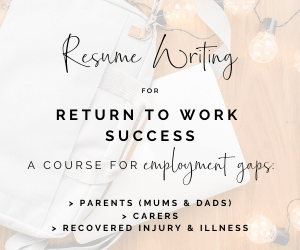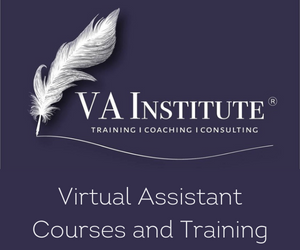So, you love writing and are thinking about making that your career. Or maybe you’ve worked as a professional writer for a while and for whatever reason, you want to go it alone. Maybe it’s for the diversity of work, maybe to specialise in a preferred area, maybe it’s because you want to strike the holy grail: a work-life balance.
Becoming a freelance writer working from home is easier than you think. You need some experience and a love of writing, but you won’t need any formal qualifications (although there are some available). You will need great language and grammar skills and be able to prove those to potential clients. Start creating a portfolio of your work and create a website to showcase what you can do. You may even find it helpful to narrow down your focus into a specific niche so you can stand out from the crowd. It’s much better to be fantastic at one type of writing, then just ok at everything.
The beginning of your freelance writing career can be the hardest part. But there are ways you can prepare yourself for success in both your writing career and the new business you’re about to undertake.
Becoming a work at home writer
Finding full time work as a writer in a company is hard these days. It’s even harder if you require something a bit more flexible to fit in with your family, so it’s not surprising that many writers are choosing to start their own business as a freelancer writing from home. This gives the option of working for many clients, and more flexibility in choosing when, where and who you’ll be working with.
With these steps and a bit of hard work, you can be well on your way to a fantastic freelance writing career.
Step 1: Develop your writing skills
You don’t need formal qualifications to become a writer, however you do need an excellent grasp of the English language (or whatever language you are writing in) and top-notch grammar skills. If you want to go down the qualification route, there are plenty of courses available from short courses in writing skills to certificate courses all the way up to degrees in English Literature or Journalism.
Step 2: Decide what sort of writer you’ll be
There are a lot of freelance writers in the world already, but there are just as many companies, bloggers, websites and even individuals that need people to write for them. Not everyone has a way with words and so there is plenty of opportunities. Some of the ways writers can be used are:
- eCommerce Descriptions –create and optimize product listings for websites, Amazon, Etsy, eBay and beyond.
- Blog Posts
- Website content
- Email Newsletters
- News Site Articles
- eBooks
- Tutorials & Teaching Materials
- Creative Writing Jobs
- Advertising
- Press releases
A great way to set yourself apart is by choosing an area or type of writing and concentrate on becoming an expert. Think about what type of writing you enjoy doing or are best at and focus on that. If you worked in another area before becoming a writer use your knowledge and skills from that. Clients love hiring writers that have experience and knowledge already about what they’re asking for.
Step 3: Learn about SEO
If you’re going to be writing for websites, you need to know a bit out Search Engine Optimisation (SEO). This is the process of optimising your written content so that it ranks well in Google and other search engines – ideally in the first 3 positions when you search for a term. It may take a little while for you to prove that you can write content that ranks well, but once you can it is a great selling point to clients and may mean you can charge a little bit more for your content.
Step 4: Create a portfolio, and a website!
You wouldn’t commission someone to paint you an artwork if you’d never seen anything they’d done before. It’s the same thing with writing. To get clients, you need to be able to show them some of your work. The best way to do this is by building a website. You can advertise your writing services as well as showcasing your writing skills. It can also be an outlet for your own creativity by putting your own blog on it as well, which can be another way to show what you can do.
If you’re looking to create a website then have a look at our How to Build Your Work at Home Website course which will teach you how to create a website yourself, saving you a bundle in website developer fees.
Step 5: Get some clients
You’ll need to learn to promote yourself to become a successful freelance writer. This comes naturally to some but can be a challenge for others. Set up LinkedIn, Facebook and Twitter accounts to start getting your brand out there. You can also attend events and conferences to start networking and meeting potential clients, or even other writers. There is some truth in the saying “It’s not what you know, it’s who you know.” If you are liked and respected by colleagues, ex colleagues, clients, friends – let them know you are going freelance and spread the word.
You can pitch and apply for writing jobs as well. If you are targeting a certain niche, then do some searching for companies you’d love to write for and pitch your services to them. Keep pitching and you’ll get a sense of what people want, what works, and your nose for the type of story which suits each genre will sharpen.
If you don’t want to cold pitch to people straight away, look for work on marketing agency websites, or sites like ProBlogger and Copify. There are also websites, magazines and blogs that will pay for accepted submissions.

Step 6: Learn how to detach from your work
You may be a fantastic writer but there will always be clients that don’t like what you’ve first written. You’ll need to learn how to detach yourself from what you write and not take it personally if you get criticism. Remember that the client is the one paying the bill so listen to their feedback and work out the solution. It’s not about you, but what they want for their business.
Step 7: Get a good accountant
Freelancing is starting your own business and unless you know what you’re doing in this regard its best to get a bit of advice from a professional. Talk to an accountant when your starting out as this will mean you can get things right from the beginning. Things like the structure of your business (most freelancers are sole traders, but it depends on your circumstances), invoicing and what you can claim as expenses are all topics you should be discussing.
Step 8: Scale as much or as little as you want
The beauty of freelance writing is that you control how much work you do. If you need more time for the family, then you don’t have to accept clients. If you have the time available, then you can look for more work.
Freelance writing can turn into a very time-consuming effort. It’s important to set a schedule so you know when you will be writing and what time you actually have available. This will enable you to be realistic when setting clients expectations and what you can deliver. After all, you’re getting into this gig so you can work from home and do more of the family stuff. Don’t let the business take over the reasons you wanted to do it in the first place.
Step 9: Don’t lose your love of words.
All going well, you might find yourself writing thousands of words a day and it can become a chore for even the most dedicated wordsmith. Try to avoid that happening. If you can, ration the writing days, make most days a balance between writing and research, interviewing and pitching. If you lose the love of words, it’s not going to be a happy life.
Becoming a freelance writer can be a very rewarding career with loads of benefits including flexibility and the ability to work from home. Like anything, it’s important to plan ahead and figure out how you’re going to achieve you goals.






